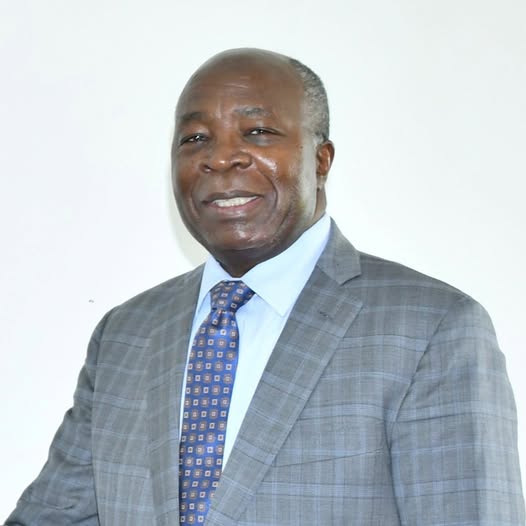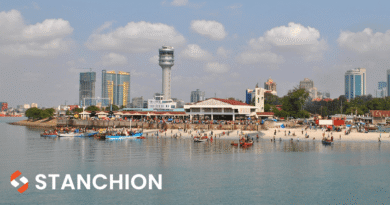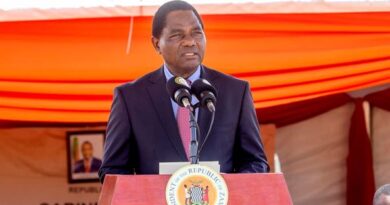Zambia Exits Default as S&P Upgrades Sovereign Rating, Citing Strong Reform Momentum
The Government of the Republic of Zambia has welcomed S&P Global Ratings’ decision to upgrade the country’s long and short-term sovereign credit ratings to CCC+/C with a stable outlook, marking Zambia’s formal exit from default status.
This development represents a major milestone in the country’s economic reconstruction efforts and reflects renewed international confidence in the reform agenda being pursued under President Hakainde Hichilema.
The upgrade highlights strengthened fiscal discipline, improved policy credibility and decisive progress in resolving Zambia’s long-standing debt crisis, which has constrained economic activity since 2020. S&P notes substantial improvements in the economic and institutional environment, supported by stabilising inflation, a resilient mining sector and stronger external buffers.
According to S&P, Zambia has reached restructuring agreements covering about 94 percent of the US$13.3 billion debt under negotiation, including agreements with official and most commercial creditors. Only a small portion of commercial debt, largely held by banks, remains under discussion. The agency added that the risk of holdout creditors is limited due to legal safeguards embedded in the restructured Eurobonds.
Government officials say the rating upgrade confirms the credibility of Zambia’s debt strategy and signals a shift away from a history of unsustainable borrowing. The improvement is expected to strengthen market confidence and reduce refinancing risks going forward.
S&P also highlights Zambia’s strengthening fiscal position. Interest costs as a share of revenue are projected to fall steadily over the medium term, while inflation is expected to return to single digits by 2026 as food supply improves and monetary policy remains prudent. External reserves have risen to US$5.2 billion, boosted by IMF disbursements under the Extended Credit Facility, increased project inflows, foreign exchange purchases by the Bank of Zambia and higher reserve-related receipts.
The country’s growth outlook remains anchored in the mining sector. Copper production increased by 17.8 percent year-on-year in the first half of 2025. The sector contributes significantly to the economy, accounting for 14 percent of GDP, 70 percent of export earnings and up to 25 percent of government revenue.
With global copper prices projected to average US$10,500 per metric tonne between 2025 and 2028, the mining industry is expected to continue supporting fiscal revenues, external balances and investor confidence. Rising investment in copper, cobalt, nickel and other minerals central to the global energy transition further supports the Government’s target of reaching 3 million tonnes in annual copper production by 2031.
S&P notes that political activity will increase ahead of the 2026 elections, yet the agency affirms that Zambia’s fiscal consolidation and structural reforms remain on course. Despite the severe drought experienced in 2024, the economic impact was softer than originally feared due to the country’s growing portfolio of renewable energy, thermal generation, battery storage systems and off-grid solutions. These developments reflect strengthened resilience to climate shocks and the ongoing transformation of Zambia’s energy landscape.
The Government has reiterated its commitment to maintaining fiscal discipline, finalising the remaining debt restructuring, expanding energy capacity, enhancing social protection programmes and promoting private-sector-led growth. S&P adds that Zambia’s rating could improve further if debt levels fall faster than projected, fiscal balances continue to strengthen, economic growth accelerates and reserves increase beyond current expectations.
Minister of Finance and National Planning, Dr Situmbeko Musokotwane, said the announcement by S&P Global Ratings is a strong affirmation of Zambia’s economic reforms, governance credibility and the resilience of its people. He noted that the upgrade confirms Zambia’s exit from default and the country’s steady return to stability as an investable and credible economy.
He added that Zambia’s experience under the G20 Common Framework has been challenging but transformative, marking a pioneering path in global debt resolution. He expressed gratitude to creditors, cooperating partners, civil society, the private sector and the Zambian public for their cooperation and patience throughout the restructuring process.
Dr Musokotwane emphasised that Government policies aimed at restoring debt sustainability, promoting export-led growth, stabilising inflation, enhancing governance and expanding energy capacity form a coherent strategy for long-term prosperity.
He reaffirmed the Government’s commitment to ensuring that improved ratings and stronger fundamentals translate into more jobs, stable prices, expanded opportunities for youth and women, increased local business participation and shared prosperity for all.



